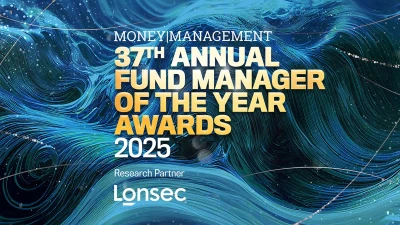Boom in private credit funds ‘rings alarm bells’



Concerns have been raised about “fly by night” managers setting up private credit funds and why advisers should be wary when it comes to their fund selection.
Private credit occurs outside of typical bank lending and funds set a minimum investment amount, which can be as high as $250,000. This money is lent directly to large organisations or real estate developments. Returns for investors are then generated from the interest payments on the loan.
These funds typically have high returns but higher fees, limited liquidity, and less transparency about where the money is invested than public funds.
As of June 2023, assets under management in private credit stood at $1.8 billion, up from $0.7 billion in 2020, according to the Australian Investment Council. For example, US private equity firm Ares Management Corporation achieved a final close of $850 million for its Australasia-focused Ares Asia Direct Lending fund in December 2023.
While much of this money comes from superannuation funds and institutional investors, a growing number is coming from high-net-worth individuals seeking higher returns without the volatility of the stock market, particularly as more people reach the sophisticated investor threshold.
Earlier this year, concerns were raised about the HNW threshold being too accessible as iresidential property values boom in Australia and that it should be raised from $2.5 million in net assets to $5 million including the family home.
However, industry experts are concerned about this sudden boom in fund launches.
Daniel Farmer, chief investment officer at MLC Asset Management, said: “There is lots of coverage in the news and capital coming into the private credit space and a lot of managers have opened up over the years. But we are seeing a lot of ‘tourist’ managers open up a private credit fund and I’m very wary of them.
“When we go into private credit, we want to see experienced, established managers who do the research and the bottom-up work to know exactly what they are buying.”
From a research house perspective, Louis Christopher, managing director at SQM, said the firm is seeing a “surge” of private credit funds seeking a rating. He said the firm typically doesn’t rate funds that have a track record of less than three years, but may make exceptions if the managers have run a similar fund previously and have sufficient resources.
“There are too many fly by night managers, everyone wants to get in on it, and you see this type of thing at the end of a cycle. It rings alarm bells and we have had to reject some funds. There are some good operators who have previous experience in the space but it is becoming competitive, and we are concerned, some managers are raising funds very quickly.
“Advisers need to be careful about investing in these types of funds because they are illiquid assets. There is a real danger they can become problematic.”
Echoing Christopher’s comment about what the launches say about the state of private credit, Farmer said he did not believe it was yet a bubble, however.
“A lot of money has come into private credit but, on the other hand, a lot of capital has been withdrawn from the traditional sources such as the banks. If there was too much capital coming in, then we would see a bubble, and those returns would be being crushed, you wouldn’t be getting the reward for the risk you are taking, and that isn’t the case yet. We are still seeing good returns from high-quality assets.”
As to what an investor or adviser should consider if they do want to invest in a private credit fund, Rodney Sebire, head of alternatives at ratings house Zenith Investment Partners, said it is crucial to understand the ins and outs of the structure.
He said Zenith is particularly concerned about private debt’s high fees, which can exceed 2 per cent per annum, and only has a small volume of private debt funds on its approved product lists.
“Including a private debt fund in a client’s portfolio is complex, it involves identifying the expected risk/return performance in negative equity environments, and alignment to the client’s growth or defensive allocation. The reliability of cash distributions and regular access to capital are key considerations. What if a manager were to freeze redemptions, would this create asset allocation imbalances and broader liquidity challenges?
“Fees and costs have always been a murky topic, with many funds not subject to the RG 97 fee disclosure regime. The payment or collection of fees across managers varies significantly, including the types of fees charged and the beneficiary of those fees. Managers may retain a portion of the borrower-paid margins or penalty interest.
“We can’t lose sight of the fact that private debt is an illiquid, sub-investment grade asset class with default risk. A thorough understanding of the lending process and how managers protect capital is crucial, the smallest detail around a security package or a covenant can ultimately save an investor from losses in a default scenario.”
Recommended for you
A potential deal between Platinum Asset Management and L1 Capital may unlock cross-selling benefits but will be unlikely to reverse structural challenges facing active managers, according to Morningstar.
Global fund manager Janus Henderson has reported four consecutive quarters of positive flows and is hopeful of its strategic partnership with Guardian Life opening up new intermediary channels.
Money Management has announced over 100 finalists for its annual Fund Manager of the Year Awards.
AUSIEX has announced it will acquire FIIG, a specialist fixed income provider with $4.5 billion in funds under advice.
















Most of the private credit funds I'm seeing are avoiding financial planners. You have the one's targeting wholesale investors and my personal favourite mortgage brokers doing it themselves with no licensing in place.